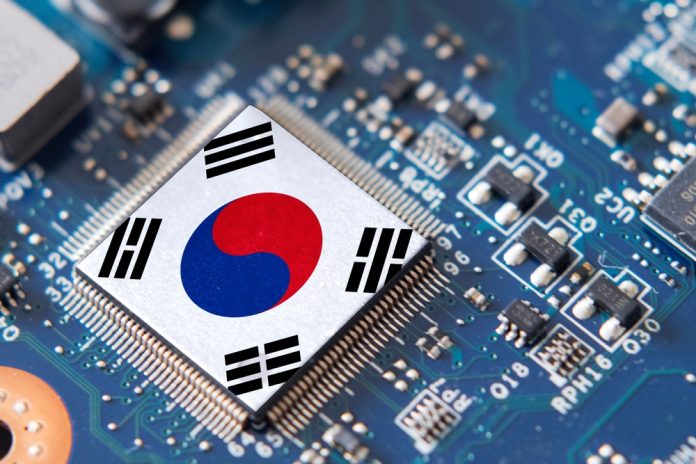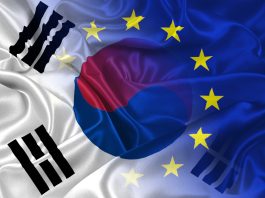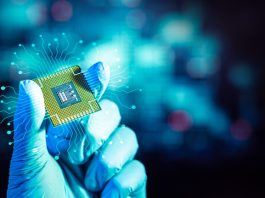The EU and the Republic of Korea have signed an agreement to collaborate on developing semiconductor technologies.
The partnership will jointly fund four semiconductor projects as a deliverable of the EU and Republic of Korea Digital Partnership.
The news follows the recent announcement that South Korea will join the Horizon Europe programme later this year.
A total of €12m in funding will be awarded, half provided by the EU via the Chips Joint Undertaking under Horizon Europe, and the other half from the National Research Foundation of Korea (NRF).
The selected projects include:
- ENERGIZE
- NEHIL
- HAETAE
- ViTFOX
These projects will run for three years to advance heterogeneous integration technologies – technologies that combine multiple components into one semiconductor.
They will also optimise neuromorphic technologies that imitate the functioning of the human brain.
Strengthening EU-South Korean ties
The initiative will combine leading experts from the European and South Korean research and Innovation spheres.
This collaboration will involve establishing joint research teams, shared access to world-leading facilities, and knowledge exchange through workshops, conferences, and the EU-Korea-Semiconductor Researchers Forum.
Partnering with South Korean institutes will give EU researchers access to some of the most advanced semiconductor technologies globally, while South Korean researchers will benefit from the EU’s leading research and innovation expertise.
Accelerating semiconductor development
The ENERGIZE project will innovate smart, wafer-thin, energy-saving devices and circuits for edge AI computing applications, such as smartwatches, home security systems, and heart monitors.
The NEHIL project aims to develop highly efficient LIDAR by using brain-like computing. NEHIL will cut power use in half, improve affordability, and make LIDAR work better in bad weather.
The HAETAE project, named after the Korean mythical creature that wards off fires, will create a platform that combines different materials to develop rapid, low-power AI circuits to boost the performance of AI chips.
Finally, the ViTFOX initiative will pioneer a vision transformer – a smart AI model that helps computers process visual information.
As these initiatives unfold over the next three years, the strengthened EU-South Korea partnership is expected to yield groundbreaking advancements, reinforcing their positions as leaders in the global semiconductor landscape.









